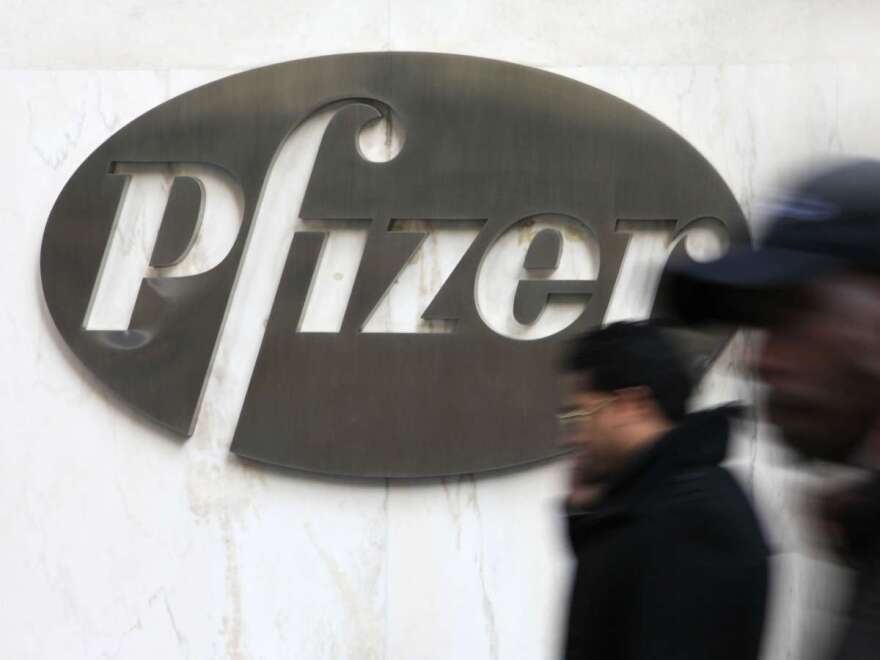Updated at 12:45 p.m. ET
Pfizer's experimental COVID-19 vaccine appears to be working. The vaccine was found to be more than 90% effective, according to clinical results released by the company Monday.
That news comes from an interim analysis of a study involving 43,538 volunteers, 42% of whom had "diverse backgrounds."
Each participant got two injections spaced 21 days apart. The analysis compared the number of cases of COVID-19 among the volunteers getting the vaccine with an approximately equal sized group of volunteers who got an injection of a liquid that didn't contain the vaccine.
In a news release from Pfizer and its partner BioNTech, the company said results from 94 evaluable cases of COVID-19 among study participants indicated the vaccine is more than 90% effective in preventing COVID-19. The Food and Drug Administration set a minimum effectiveness bar at 50%.
This is the first COVID-19 vaccine in development to have data showing that it exceeded that mark.
"I tend to be an optimist. I've been in vaccine development for over 35 years," said Dr. William Gruber, senior vice president of vaccine clinical research and development at Pfizer. "But this is extraordinary, and I think it speaks well not only for the potential of this vaccine but potentially other vaccines that are out there in development for COVID-19."
"This result is towards the high end of expectations," said an emailed comment from Shane Crotty, professor at the Center for Infectious Disease and Vaccine Research, La Jolla Institute for Immunology. "Greater than 90% efficacy at preventing disease, with 94 COVID-19 cases to evaluate, is an excellent outcome! It would be good to see more of the data, but those are very convincing numbers."
While promising, this analysis alone does not provide enough information about the vaccine for Pfizer to ask the FDA for permission to distribute it.
The agency has informed manufacturers that it wants a minimum of two months of follow-up data from at least half of the volunteers. The FDA says the reason for that requirement is that most dangerous side effects from a vaccine occur within two months of getting the final injection. Pfizer says that data won't be available until the third week in November.
The company didn't say how serious the COVID-19 cases were that occurred in the study, or whether any of them required hospitalization.
The Pfizer vaccine trial is what's known as an event-driven study. It does not last for a specified period of time. Instead, the study will continue and won't be considered complete until it has recorded a total of 164 cases of COVID-19 among all the volunteers.
As described in its publicly released protocol, the company had planned to conduct four interim analyses, when a proscribed number of COVID-19 cases had occurred. The results released Monday are from the second one, the company having agreed with the FDA to forgo the first analysis.
Copyright 2020 NPR. To see more, visit https://www.npr.org.


